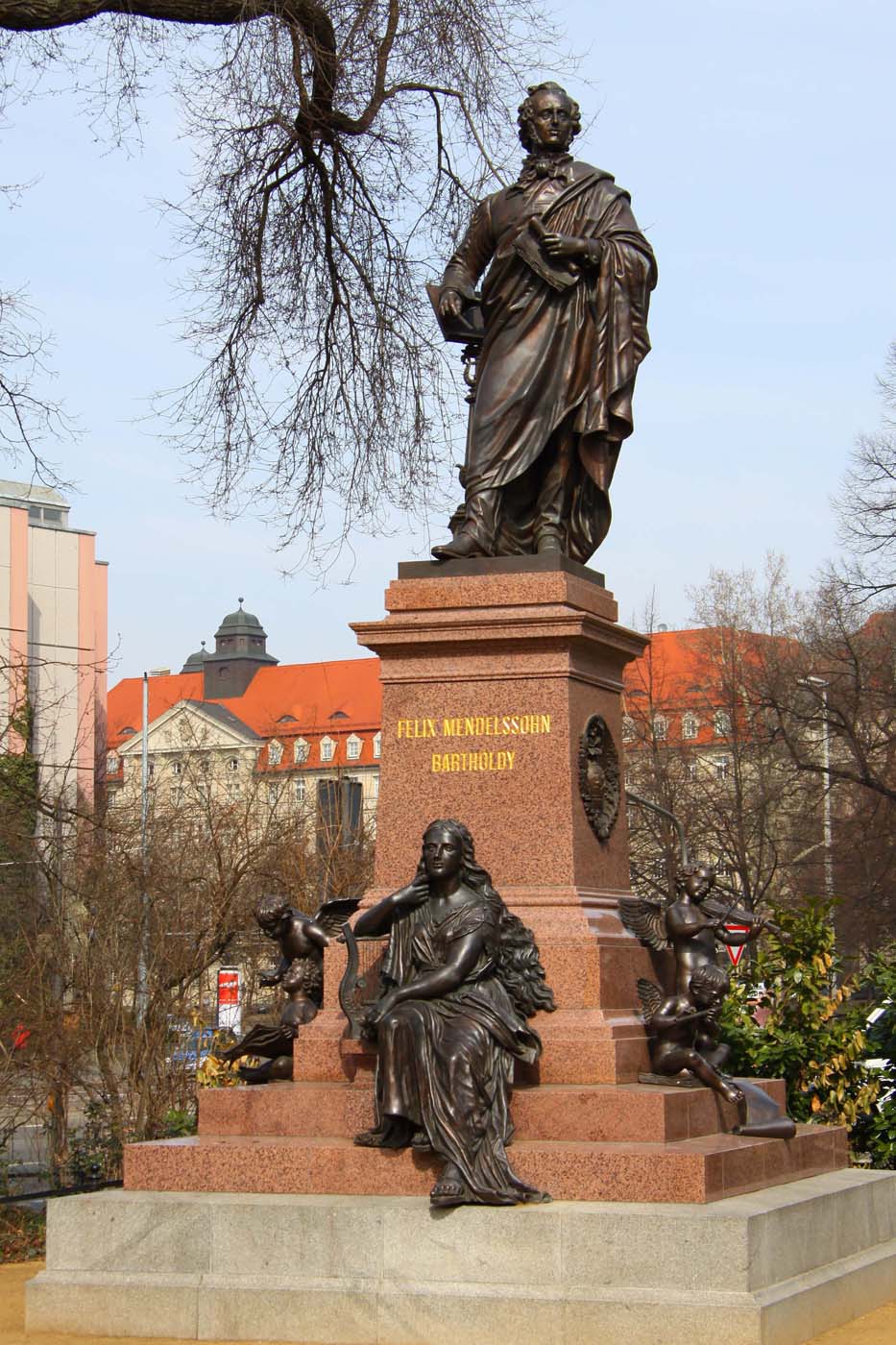Mendelssohn's performance of the Matthaeus Passion
11 March 2024 – On this day, March 11th, in 1829, the Mattheaus Passion was heard again for the first time since Bach's time. At the Singakademie zu Berlin, with none other than Felix Mendelssohn Bartholdy as conductor.
Mendelssohn, only 20 at the time (!), had already been in contact with Bach's music at the Singakademie. Five years before his grandmother presented him with a unique gift: the complete score of the Passion. The work was really obscure at the time, forgotten by most, but Mendelssohn's grandmother recognised the outstanding quality of the work and passed it on to her prodigy grandchild.
Mendelssohn really had to fight to get the complete work performed - people considered it too long and tedious, so he had to make some cuts in order to keep it within the hearing span of the time. But he finally got it performed on that day in 1829, opening up the road to Bach's rediscovery in the 19th century, without which we may have probably never known many if not all of Bach's work.
Mendelssohn continued to study more pieces by Bach, not only cantatas but also his work for keyboard, which he performed all through Europe to famous figures of the time like Johann Wolfgang Goethe or Queen Victoria. It is of course not only Mendelssohn who was responsible for the rediscovery of Bach, but it is widely considered that this performance of the Mattheaus was a crucial milestone in getting widespread attention on Bach's work in the 19th century.
So I've created a special playlist for today, I hope the purists forgive me... It combines works by Bach of which it is known that Mendelssohn performed them, and some of his own compositions.
As "bookends" to the playlist I've chosen the first and last movement of the Matthaeus Passion, the incredibly moving choruses "Kommt, ihr Töchter, helft mir klagen" and "Wir setzen uns mit Tränen nieder", both of which give me goosebumps everytime I hear them.
Up next is the delightful overture by Mendelssohn "The Hebrides", followed by an organ piece by Bach, Prelude and Fugue in E-flat major, BWV 552, of which it is known that Mendelssohn played it - he was a keyboard virtuoso.
Then Mendelssohn's magnificent Violin Concerto in E minor, Op. 64, an absolute classic. Bach's Sonata in E minor for flute and basso continuo, BWV 1034, was also performed in the Mendelssohn family.
It is important to realise that Mendelssohn spent most of his professional life in Leipzig, which brings him even closer to Bach. And the 1829 performance seems to inspire him to also create choral works. On suggestion of a subscriber of the site, Jennifer, I've added a wonderful recording by Philippe Herreweghe of Psalms 42 and 31, and a chorale cantata (based on a hymn by Martin Luther), Verleih uns in Frieden. Jennifer also recommends searching out Mendelssohn's Paulus and Elijah oratorio's.
The last piece by Mendelssohn is the magnificent "Italian" Symphony No. 4 in A major, and as said we close with the last movement of the Matthaeus Passion.
I hope you forgive me for this mixed playlist and that you enjoy it... I think as Bach enthousiasts we should be grateful for the perseverance and musical insight of people like Mendelssohn!
Music for today
- Passio secundum Matthaeum - 1. Kommt, ihr Töchter, helft mir klagen, BWV 244
(first performance 11 April 1727, Leipzig period) - The Hebrides or Fingal's Cave, Overture in B minor for orchestra Op.26, MWV P7
(first performance 1830-1832) - Prelude and Fugue in E-flat major, BWV 552
(first performance 1739, Leipzig period) - Violin Concerto in E minor, Op. 64, MWV O14
(first performance 1830-1832) - Sonata in E minor for flute and basso continuo, BWV 1034
(first performance 1717-1723, Köthen period) - Symphony No. 4 in A major, Op. Posth. 90, "Italian", MWV N16
(first performance 13 May 1833) - Passio secundum Matthaeum - 68. Wir setzen uns mit Tränen nieder, BWV 244
(first performance 11 April 1727, Leipzig period)
Playlist
WBCF0311-Mendelssohn's performance of the Matthaeus Passion
Choose one of these streaming services to listen to this playlist:
Image of the day

Statue of Felix Mendelssohn Bartholdy next to the Thomaskirche in Leipzig. Mendelssohn's performance of the Matthaeus Passion in 1829, the first performance since Bach's lifetime, was a watershed moment in the rediscovery of Bach's work in the 19th century.